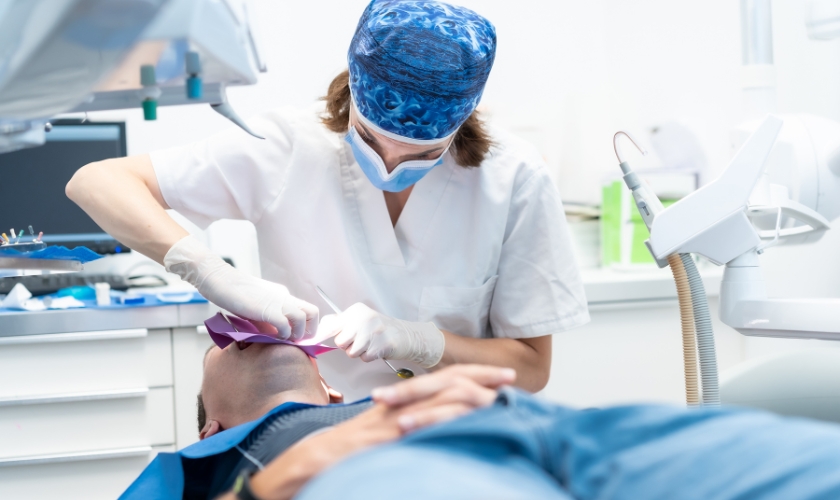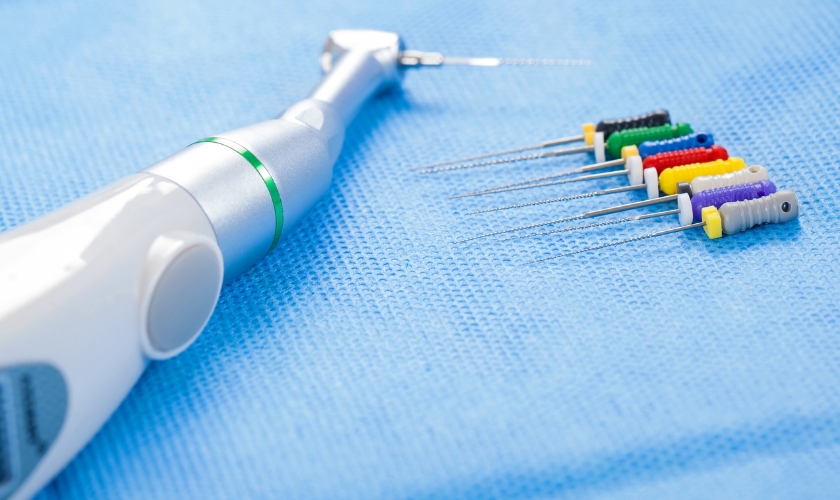704-844-2943
AVAILABLE FOR EMERGENCIESHow to Maintain Tooth Health After Endodontic Surgery

Endodontic treatment, commonly known as a root canal, is a dental procedure designed to save a tooth that is severely infected or decayed. This procedure involves removing the infected pulp from inside the tooth, cleaning and disinfecting the area, and then sealing it to prevent further infection. After undergoing endodontic surgery, it is crucial to follow proper care guidelines to ensure the success of the procedure and maintain oral health. In this comprehensive guide, we will discuss the steps and tips on how to care for a tooth after endodontic treatment.
Post-Endodontic Treatment Care: Ensuring The Success Of Your Root Canal
Before delving into post-treatment care, it’s essential to understand what endodontic treatment entails. This procedure is typically recommended when the pulp inside the tooth becomes infected or inflamed due to deep decay, a cracked tooth, or trauma. Endodontic treatment aims to:
- Remove infected or damaged pulp.
- Clean and disinfect the root canal system.
- Seal the tooth to prevent reinfection.
- Restore the tooth’s function and aesthetics.
Additionally, your dentist will provide specific post-treatment instructions tailored to your case. It’s crucial to follow these instructions diligently, including medication schedules, dietary restrictions, and oral hygiene practices.
Essential Tips For Immediate Care After Your Root Canal Procedure
Following a root canal, the effects of anesthesia may persist for several hours, leaving your mouth numb. It is imperative during this period not to ingest any food or beverages until normal sensation returns to your mouth. Failure to do so may lead to accidental injuries, such as biting or burning the sedated area or unintentionally damaging the treated tooth.
Once the anesthesia subsides, you can resume eating. However, it’s advisable to chew on the opposite side of your mouth from where the root canal was performed to avoid placing undue pressure on the treated tooth. Exercise caution while eating, minimizing chewing to reduce discomfort, especially since your mouth may still be swollen and hypersensitive.
The Initial Phase After Root Canal Surgery: Diet Tips
The initial phase after a root canal surgery calls for a diet that is gentle on your mouth. Optimal food choices during this period include:
- Fruit smoothies
- Yogurt
- Soft cereal
Over the Following Days
The days immediately following your root canal are pivotal for a smooth recovery and alleviating discomfort. It’s important to proceed with care to prevent any inadvertent damage and minimize pain. While some degree of discomfort, including a mild ache, is expected post-procedure, following these guidelines can aid in a more comfortable recovery:
Optimal Dietary Guidelines For Accelerated Healing After Endodontic Surgery
- Stick to soft foods that are easy to consume and require minimal chewing to reduce strain on the treated tooth and facilitate faster healing.
- Refrain from consuming excessively hot or cold foods and beverages, opting instead for items at a moderate temperature to prevent heightened sensitivity.
- Avoid chewy, sticky, or hard foods, which can dislodge temporary fillings or crowns and potentially compromise the integrity of the treated tooth.
- Steer clear of spicy foods and alcoholic beverages, which can irritate sensitive areas and exacerbate discomfort.
Meal Suggestions for the Initial Recovery Period
- Scrambled eggs, yogurt, or smoothies for breakfast.
- Ripe, cooked, or canned fruits as snacks.
- Mashed vegetables, meatloaf, pasta, noodles, or lukewarm vegetable soup for dinner.
- Desserts like sorbet or frozen yogurt.
Crucial Oral Hygiene Techniques for Post-Endodontic Treatment Care
Maintaining meticulous oral hygiene is paramount during the recovery phase to prevent infection and promote overall oral health. Follow these oral hygiene recommendations:
- Brush gently with a soft-bristled toothbrush, paying extra attention to the treated area.
- Floss carefully, avoiding forceful movements that may dislodge temporary fillings.
- Increase the use of mouthwash to reduce bacteria and keep the mouth clean.
Top Pain Management Strategies Following Endodontic Surgery
It is common to experience some degree of discomfort following a root canal procedure, especially while eating. This discomfort typically subsides within a few days but may persist for a few weeks. To manage pain effectively:
- Take prescribed anti-inflammatory and pain relief medication as directed by your dentist.
- Rinse your mouth with lukewarm salt water multiple times a day to alleviate pain and reduce swelling.
Long-Term Care Strategies: Ensuring The Durability Of Your Endodontic Treatment
Following the initial root canal procedure, a subsequent appointment is arranged to remove the temporary filling and permanently seal the root canal. Afterward, a permanent filling or crown is placed to finalize the restoration process and protect the tooth from potential damage.
Regular follow-up appointments are crucial for monitoring the tooth’s status and ensuring proper healing. Consistent long-term oral care, which includes thorough brushing, daily flossing, and regular dental check-ups, is vital for sustaining oral health and preventing future dental problems.
Adhering to these guidelines for post-root canal care and maintaining a steady routine of oral hygiene practices can facilitate healing, reduce discomfort, and safeguard the lasting health of the treated tooth.
Preserving tooth health following endodontic surgery necessitates careful attention to post-operative care, dietary choices, and oral hygiene habits. By following the guidance of your dentist and embracing healthy routines, you can guarantee a successful recovery and enduring oral health. Regular dental examinations and professional advice are essential for upholding the advantages of your surgery. If you have undergone endodontic surgery in Matthews, NC, these recommendations will assist you in maintaining a healthy and resilient smile for years to come.

